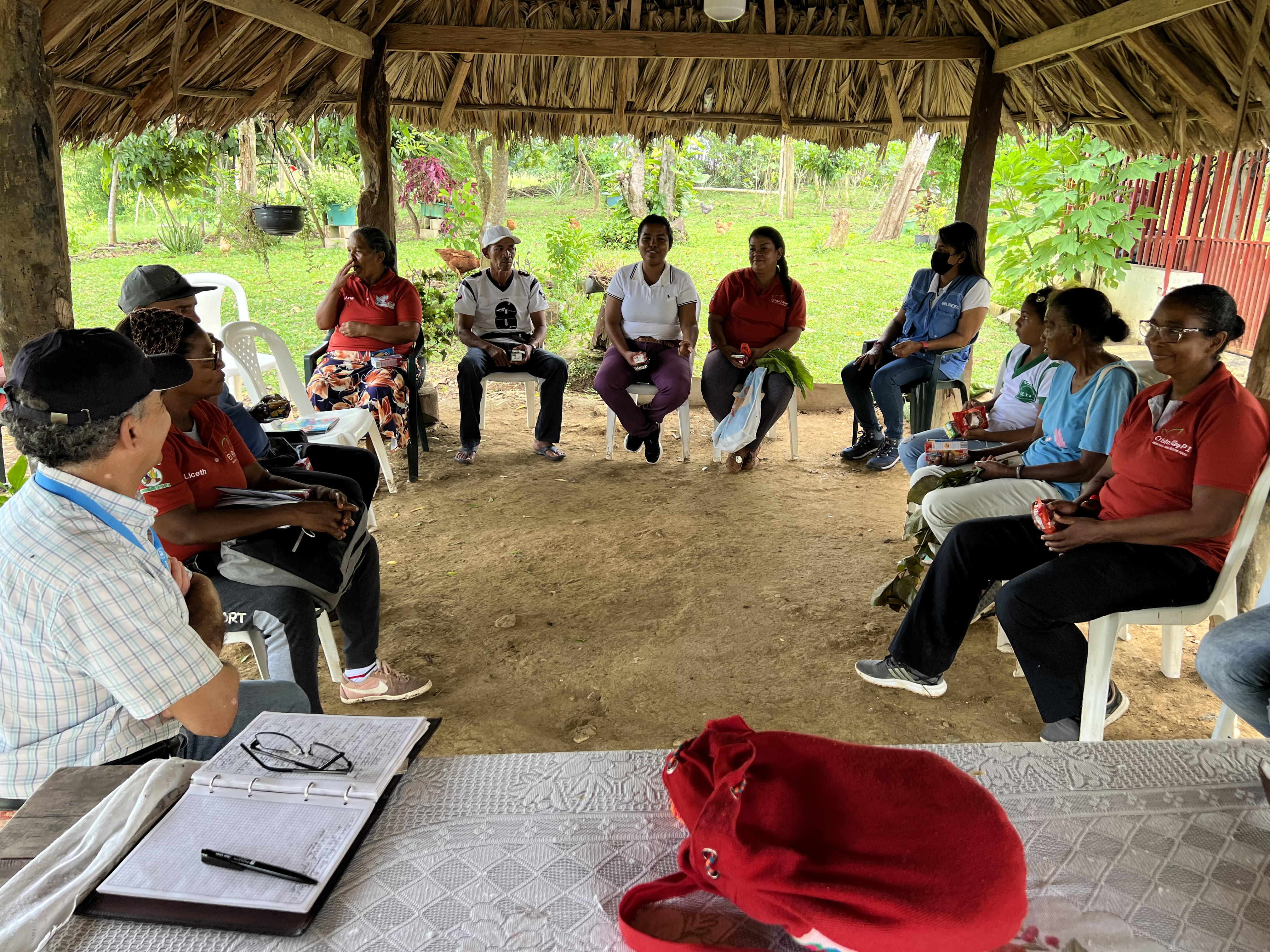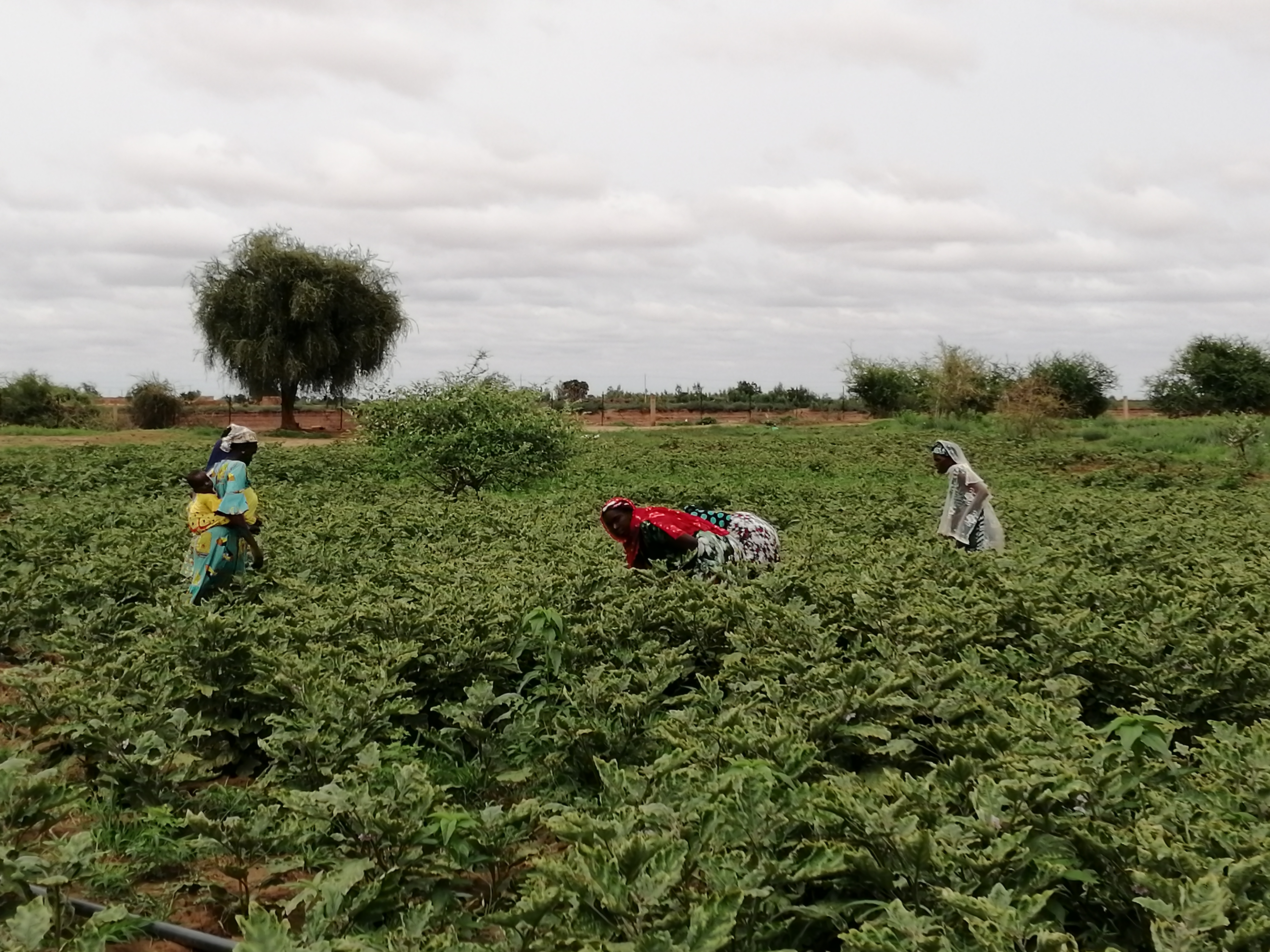IFAD helps rural citizens in Colombia regain trust in the State - IOE
Rome, 21 March 2023 – IFAD funded interventions in Colombia have been particularly successful in helping rural citizens and beneficiaries to begin to regain trust in their own organizations and in the state. This has been a key element in advancing the peace process. The gradual increase in coordination – through agreements and joint activities supported by IFAD projects – among local associations and institutions at the territorial level was instrumental in this regard. This was one of the findings of the Country Strategy and Programme Evaluation (CSPE) report in Colombia, soon to be published by the Independent Office of Evaluation of IFAD (IOE), which was discussed during a learning workshop on 21 March 2023.
“IFAD-supported interventions have strengthened the social tissue and the social fabric, and promoted the empowerment of the different vulnerable population groups. This is most important for the Government, because our aim is to achieve total peace”, affirmed Jorge Ricardo Torres Rueda, Director of International Cooperation, Ministry of External Relations of Colombia.
Co-organized by the Government of Colombia and IOE, in collaboration with IFAD’s Latin America and the Caribbean Division, the on-line virtual workshop brought together a wealth of high-level attendants, including Mr Torres Rueda. Over sixty participants joined the event, representing the government of Colombia, key project implementing partners, development partners, representatives of beneficiaries associations, and others, as well as IFAD senior management and staff.
The evaluation covered the period 2008–2022, and was the first CSPE to be carried out in the country. IFAD-supported projects have been oriented towards rural populations with few assets, post-conflict territories (in recent years), women, youth, Indigenous Peoples and Black, Afro-Colombian, Raizal and Palenquera communities present in poor territories. Support was also provided for initiatives and business plans for citizens’ associations located in medium-sized towns and cities, key areas for greater urban/rural dynamization.
“IFAD-funded interventions helped restore social capital and cohesion. This helped create a more dynamic environment for creating jobs and income opportunities in rural Colombia. It also promoted rural-urban economic interactions and economic growth in intermediate towns” stated Indran A. Naidoo, IOE Director.
Through these interventions, the evaluation found that IFAD has been a pioneer in bringing approaches and mechanisms into the public policy sphere to address rural poverty through a non-assistance-based model. For two decades, it has promoted projects aimed at small-scale producers and entrepreneurs, with broad and diverse national coverage. These efforts have responded to the demands of local actors, facilitating their access to public resources and ownership of initiatives, through an approach aimed at rebuilding the social fabric and strengthening the resilience of households and associations.
In highly insecure and conflict-affected rural scenarios, strengthening of the resilience of families and associations was an important accomplishment, which was made possible by a set of coherent innovations that included participatory approaches that were suited to meeting the varying demands of small-scale producers and entrepreneurs. These resulted in increased beneficiaries’ income, jobs and physical assets and improvement of food security through diversification of production and income-generating activities. The projects also promoted a high level of participation by women. This translates into thousands of women involved in economic, political and citizen empowerment activities.
“Vulnerable people are at the centre of our programmes. Funding helped to promote rural development that put at the centre the small-scale producers who live in poverty. Providing opportunities to vulnerable groups was made possible by the virtuous combination of funding and capacity building necessary to be able to manage resources. For the first time, many of these resources were managed directly by the beneficiaries”, said Donal Brown, Associate Vice-President, Programme Management Department, IFAD.
Meeting participants also discussed the challenges presented in the evaluation report. These include limitations in the continuity and quality of access to technical and financial services, the absence of an explicit strategy for scaling up and low synergy with other agencies and private and public entities, which affects the maximization of impacts. As a result, it was thus difficult to see gradual progress in institutionalization within the Ministry of Agriculture and Rural Development or the securing of new resources.
Another aspect in need of greater attention is the lack of a broad environmental, natural resource management and climate change adaptation strategy at the level of territories and areas of intervention. In part, this hindered the use of lessons learned and alternatives to develop adaptation and resilience strategies in fragile agroecosystems.
Looking ahead, it is recommended that IFAD channel a larger portfolio of resources to expand and dynamize its country strategy and programme, substantially increasing its portfolio in Colombia. IFAD may also consider developing a dialogue with the new Government and key partners to agree, design and implement a relevant co-financed portfolio of projects and grants, as well as building a communication strategy aimed at sharing and using results as public goods.
Colombia is an upper-middle-income country with a gross domestic product (GDP) of US$5,312 in 2020. More remote rural areas have historically been associated with higher levels of poverty, particularly among Indigenous and Afrodescendent populations. By 2020, the percentage of people living in multidimensional poverty was 18.1 per cent overall and 37.1 per cent in rural communities and other rural areas. Since 1981, when IFAD began operations in Colombia, four loans have been approved, of which three have been closed. The total portfolio cost was US$186.8 million, with an IFAD financial contribution of US$74.3 million. During the period covered by this evaluation, the total portfolio cost was US$125.1 million, with total IFAD financing of US$50.3 million.
For further information, please contact Alexander Voccia [here]
RESOURCES
- To access past IOE-led evaluations in Colombia, please click here.
CONTACTS


